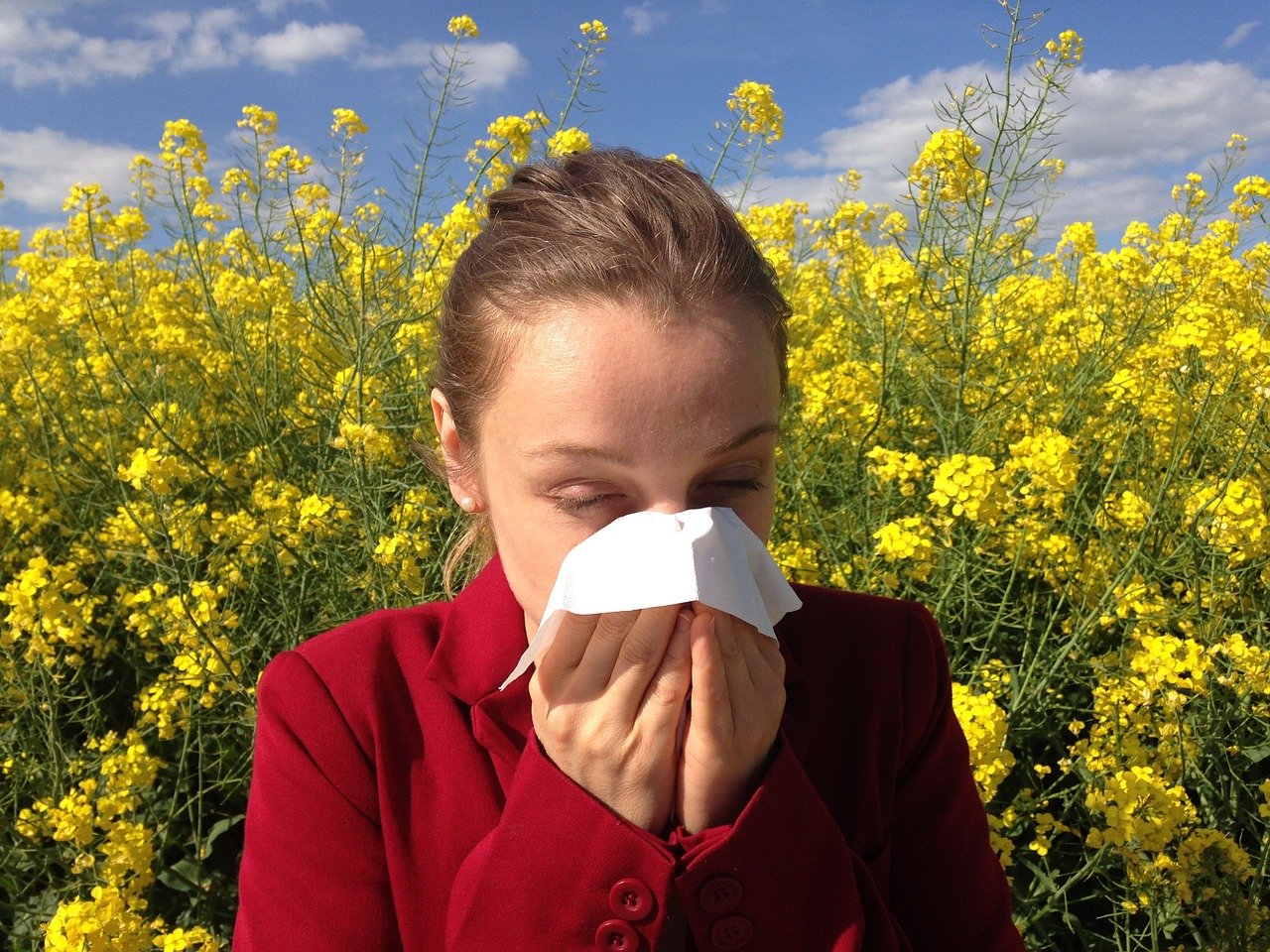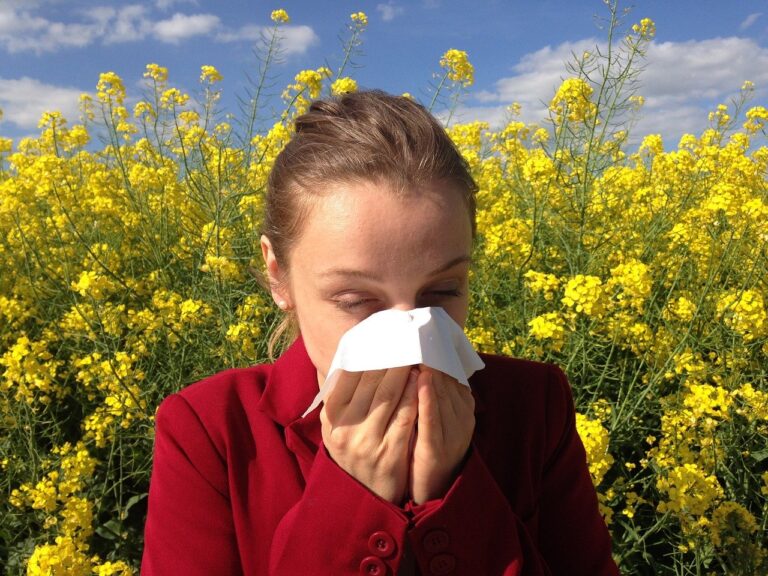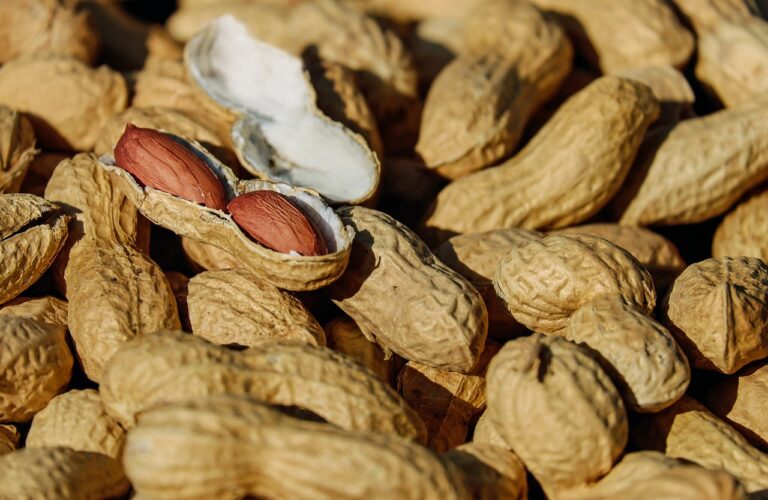Allergy Therapeutics plc (LON:AGY), the fully integrated commercial biotechnology company specialising in allergy vaccines, today announced its unaudited interim results for the six months ended 31 December 2021.
· Portfolio focused on high value growth products to enhance future profitability
· Ground-breaking Phase I trial of peanut allergy vaccine on track to commence in 2022 following recent FDA clearance of IND application with data expected sooner than previously anticipated
· Pivotal Phase III trial of short-course grass pollen immunotherapy to commence in Q3 2022 following impressive results from exploratory field trial
· Solid revenue of £49m, increased cash position of £41m
Highlights
Financial
· Solid revenue from commercial portfolio of £48.7m. Strategic streamlining of older products has affected a short-term revenue decrease of 10% (5% at constant currency* and up 4% on like for like constant currency* plus phasing) from £54.0m in H1 2021
· Operating profit pre-R&D of £12.5m (H1 2021 £20.5m) reflecting portfolio streamlining and activity to pre-Covid-19 levels
· Increased cash balance of £41.4m (30 June 2021: £40.3m). Net cash of £38.5m (30 June 2021 £36.9m)
· £10m revolving credit facility signed post period to replace previous £7m overdraft facility
· Strong outlook for the full year with operating profit (pre-R&D) expected to be in line with consensus forecasts
Operational
· IND application cleared by the United States Food & Drug Administration (FDA) for peanut allergy vaccine candidate, VLP Peanut, with initial patient treatment due to begin in 2022 and top line data expected H1 2023, earlier than originally intended data readout of Q4 2023
o $8bn per annum market opportunity
o VLP Peanut has the potential to provide long-term immune response in comparison to continual dosing required by other treatments
· Impressive results from exploratory field trial of wholly owned short-course grass pollen immunotherapy, Grass MATA MPL, enabling pivotal Phase III trial to begin in Q3 2022
· Growth of key commercial portfolio products, Pollinex, Venomil and Acarovac
Manuel Llobet, CEO at Allergy Therapeutics, stated: “This year will see the Company prepare for entry into the US market where the allergy immunotherapy market is estimated to be worth $2 billion. Our Company continues to stand out as a high value hybrid, with its strong commercial business and high science R&D programmes. We are well placed to create shareholder value through our pivotal stage grass pollen immunotherapy and our innovative peanut allergy vaccine, both of which have significant potential in the US market.
“Our strong cash position and commercial capabilities give Allergy Therapeutics a highly differentiated position and opportunity to investors compared to solely R&D-focused healthcare companies.”
*Constant currency uses prior year weighted average exchange rates to translate current year foreign currency denominated revenue to give a year-on-year comparison excluding the effects of foreign exchange movements. See table in finance review for an analysis of revenue.
Joint Statement from the Chairman and Chief Executive Officer
Operating Review
Overview
2021 provides a strong springboard for pivotal year ahead
2021 was the springboard for Allergy Therapeutics’ pivotal year, 2022. This year will see the Company prepare for entry into the US market with two significant clinical trials. The Group has generated strong revenue since its formation in 1999, significantly outperforming the market. We expect that strong commercial performance to continue.
The Group’s innovative and high value pipeline continues to progress at pace with a successful exploratory field trial paving the way for the pivotal Phase III Grass MATA MPL trial to start later this year. Clearance by the FDA of the Investigational New Drug (IND) application and protocol for the upcoming, ground-breaking, Phase I PROTECT trial investigating the Group’s peanut allergy vaccine candidate, VLP Peanut, was another important step and further validation of the strength of Allergy Therapeutics’ innovative and potentially disruptive future portfolio.
In order to focus the business, as previously announced, the Group continues to strategically streamline its portfolio to focus on its high margin, differentiated short course subcutaneous immunotherapies and innovative allergy treatments. The Group will continue robust cost controls while its significant clinical programmes progress.
The Market
Maintaining focus on high value and highly differentiated immunotherapies
Allergy Therapeutics reported solid revenue of £48.7m from its commercial portfolio. Strategic streamlining of the Group’s non-differentiated older products led to a 10% reduction from £54.0m in 2020 on a reported basis (down 5% on constant currency* basis). This repositioning of the portfolio maintains focus on high value and highly differentiated short course subcutaneous immunotherapies (SCIT) and innovative allergy treatments to drive the growth of the business. On this revised basis, revenues have increased 4% on a like-for-like product and phasing basis (on constant currency* basis). As most manufacturing costs are fixed, the lower sales have directly affected the gross margin along with increased cost of sales and the foreign exchange impact of the weaker Euro.
Revenues were also affected by phasing, headwinds in Germany and the continuing effect of Covid-19 in Italy and Germany, which are expected to be short term. While the supply chain was hampered by the spread of Covid-19, these delays in delivery were short term and should be recovered this year. Spain, the Group’s second most important market, saw a double-digit growth in sales, while the Netherlands, UK, and Rest of World (RoW) also grew strongly. There was double-digit growth for key products Pollinex, Venomil and Acarovac (on constant currency* basis).
On current internal assumptions and as previously communicated, the Group will be able to fund the Grass MATA MPL Phase III trial (G306), as well as the VLP Peanut Phase I PROTECT trial, from existing resources with some additional debt. The Board continually reviews the Group’s funding requirements, including opportunities to further de-risk its clinical trial programmes to optimise future value creation. These options include, but are not limited to, a potential path to a Nasdaq dual listing.
Regulatory Affairs & Clinical Development
Maximising the chances of success in grass pollen immunotherapy
The Group achieved very impressive results from its exploratory field study (G309) to evaluate the efficacy and safety of its short-course subcutaneous immunotherapy (SCIT) candidate, Grass MATA MPL, that aims to address the cause of symptoms of allergic rhinoconjunctivitis due to grass pollen. Results from the trial indicated a significant reduction in daily symptoms and use of relief medication among participants receiving Grass MATA MPL. Both dosing regimens used in the trial were safe and well tolerated.
Given its extensive experience and leadership in allergy focused clinical development, the Group used a novel study design and methodology in the G309 trial to examine multiple endpoints and enable extensive biomarker analysis. Learnings from the trial, alongside the excellent results, have enabled the Company to optimally design its upcoming pivotal G306 Phase III field trial, to maximise the chances of success and support the Group’s future regulatory plans for entry into the US. The Company has further decided to increase the confidence interval of the trial, increasing the number of patients and will fund the extra cost with additional debt.
The Group is now on track to begin patient treatment in the Grass MATA MPL pivotal Phase III trial (G306) in the autumn of this calendar year.
The total US allergy immunotherapy market is estimated to be worth $2bn with around 25% of the patients suffering from grass allergy. This could imply potential peak sales for the Grass MATA MPL product of about $300 to $400m per annum.
A paradigm shift in the future treatment of peanut allergy
FDA clearance of the Group’s IND application for VLP Peanut in January was a key milestone in the development programme of this peanut allergy vaccine candidate. Following consultation with experts in the field, the IND application included a protocol for the upcoming Phase I PROTECT trial that moves the planned paediatric and adolescent arms into a future Phase II trial. As a result, top line data from the Phase I PROTECT trial, in adult patients, are now anticipated in H1 2023, ahead of the original intended Q4 2023 data readout.
The protocol includes multiple cohorts starting with subcutaneous injection of healthy subjects, followed by skin prick tests for peanut allergic patients and then moving to subcutaneous injection of peanut allergic subjects. Although the trial protocol does not allow reporting of results mid-trial, to avoid biasing the outcome, the Group expects to communicate the transitions between cohorts, to update on the trial’s progress.
The batch of investigational medicinal product (IMP) intended for use in the trial has been successfully manufactured, tested and released. Initial dosing of patients is expected in 2022.
The Group continues to believe that VLP Peanut has the potential to be a transformative treatment option for one of the most dangerous allergies. The availability of a safe and effective short-course vaccine that provides long-term protection and induces a long-lasting protective immune response would present a paradigm shift in how peanut allergy can be managed and has the potential to be a significant product in the $8bn worldwide food allergy market. While currently available immunotherapy products provide an important treatment approach for patients and families who have, for too long, been without options, they require continual dosing over the long-term to maintain a tolerance to peanut, which might limit patient adherence.
Strengthening an innovative immunotherapy portfolio
The Group’s portfolio is broad and strong with two additional key MATA MPL product candidates (Ragweed and Birch/Trees MATA MPL) which currently have INDs and could be progressed through late-stage development and commercialisation to join the Grass MATA MPL product in the US. These three products, along with VLP Peanut, form a strong and compelling portfolio that would enable the Company to lead the allergy immunology market in the US.
With further paediatric trials, the Group also expects to be able to expand into the paediatric segment of the market. The state-of-the-art portfolio of ultra-short course allergy immunotherapies offer greater flexibility and treatment options for patients. Some of these products are already available under a named patient basis in Europe.
Investing in infrastructure to maintain leadership
Allergy Therapeutics has a strong track record of quality and compliance with current Good Manufacturing Practice (cGMP) requirements at its facilities. Accordingly, the Group continues to upgrade the Worthing site and enhance its processes to maintain the Group’s excellent levels of quality.
The Company has continued its infrastructure investment to ensure Allergy Therapeutics maintains a sterile, pharmaceutical controlled environment within its own production facilities, including a more efficient and reliable energy centre that will be owned and run by the Group.
Financial Review
Streamlining and focus on shareholder value creation
Reported revenue for the first half of the financial year was £48.7m (H1 2021: £54.0m), representing a decrease of 5% at constant currency* (see table below) and 10% in actual terms. The sales movement has been driven primarily by the Group’s planned streamlining of the product portfolio.
As in previous years, owing to the seasonality of the pollen allergy market, between 60%-70% of Allergy Therapeutics’ revenue is generated in the first half of the financial year and, as a consequence, the Group typically reports profits in the first half of the year and losses in the second half.
Cost of goods sold increased in the period to £12.8m (H1 2021: £11.8m), mainly due to lower overhead recovery (driven by Covid-19 issues) and labour cost rises. Gross profit decreased to £35.9m (H1 2021: £42.2m), which represents a gross margin of 74% (H1 2021: 78%). This reflects the fact that most of the manufacturing costs are fixed and decreases in sales directly affect the gross margin along with the lower absorption of overheads and foreign exchange.
Sales, marketing and distribution costs of £13.1m (H1 2021: £12.4m) were higher due to increased activity. The increase in administrative expenses to £10.6m (H1 2021: £9.6m) reflects investment in infrastructure, particularly IT systems related to cyber security and compliance.
Research and development costs were £5.0m (H1 2021: £4.7m) due to preparation for the VLP Peanut PROTECT trial as well as the Grass MATA MPL exploratory field trial which finished in the late autumn.
The tax charge in the period of £0.6m (H1 2021: £0.6m) relates to overseas subsidiaries.
Property, plant and equipment decreased by £0.5m to £19.0m (H1 2021: £19.5m) compared with the year before, mainly as a result of a natural reduction in the remaining leasehold period of leased assets. Goodwill was £3.3m (H1 2021: £3.4m) and was lower than the prior year due to changes in foreign exchange rates. Other intangible assets have decreased by £0.2m due to the amortisation charge being in excess of additions.
Total current assets excluding cash have increased by £0.8m to £21.7m (H1 2021: £20.9m) mainly due to increased stock levels to protect against Brexit, a longer supply chain and R&D tax credits.
Retirement benefit obligations, which relate solely to the German pension scheme, decreased to £11.6m (H1 2021: £13.4m) due to currency movements.
Net cash generated by operations was positive but lower than last year mostly due to lower revenue creating low margins as well as a longer supply chain with an inflow of £3.7m (H1 2021: £13.0m).
All periods now are based on IFRS16, the new accounting standard on leased assets. Assets that were previously shown as operating lease assets are now on the balance sheet with an accompanying liability. The measure of earnings before interest, tax and depreciation and amortisation has benefited to the order of £0.9m in comparison with pre IFRS 16 treatment. There is no material impact on the operating profit.
Financing
Strong cash position
The Group had cash of £41.4m (30 June 2021 £40.3m) and debt on its balance sheet at the close of the period relating to loans held in the Spanish subsidiary of £2.9m (H1 2021: £3.8m) with £0.2m due to the exchange rate movement. The seasonal overdraft was not used during the calendar year 2021.
Following the half year end, the Group signed a £10m revolving credit facility to replace the £7m overdraft facility that was previously in place.
The Directors believe that the Group will have sufficient facilities for the foreseeable future and, accordingly, they have applied the Going Concern principle in preparing these interim financial statements.
Movements in the currency markets between the respective values of the Euro and Sterling have an effect on the Group’s operations. The Group manages its cash exposure in this respect by foreign currency hedges. Over 90% of our gross sales are denominated in Euro whereas approximately 60% of costs are incurred in the United Kingdom and denominated in Sterling.
Outlook
Well placed for an exciting and pivotal year ahead
Allergy Therapeutics is keen to capitalise on the significant opportunities that lie ahead with the commencement of two important clinical trials in the US.
The Group’s solid commercial performance of its operations is expected to continue this financial year, while the planned commencement of two important clinical trials is anticipated to result in increased R&D expenses.
The Board remains confident that market consensus for the operating profit (pre-R&D) will be achieved despite an expected short-term decline in 2022 revenues partly linked to the strategic streamlining of older products.
The strategic streamlining of the portfolio is expected to continue in combination with robust cost controls as the Group advances the clinical development of its candidates VLP Peanut and Grass MATA MPL and rapidly returns to growth.
Peter Jensen
Chairman
Manuel Llobet
Chief Executive Officer








































